Why “Array”
Array, in Information Technology is an indexed data structure: a method to organize information. Array, more in general, is a word conveying a concept of “order” not based on a hierarchical structure, but upon rules and organization.Array groups a number (an “array”) of independent IT lawyers, aiming at providing a legal support to enterprises, developers and – why not – law firms in all cases where a highly specialized competence is required in the IT & TLC fields. This competence is sided by a deep understanding of the technical issues underlying the legal issues. Those competences are seldom available in traditional law firms, even in those specializing in “Intellectual Property”. Nonetheless they are indispensable in order to provide a suitable assistance to the relevant subjects in the field.Last but not least, members of Array, beside providing assistance and consulting in the “traditional” areas of IT & TLC Law, are mainly focused on Free Software (also know as “open source” software) and are able to offer in this specific field some competence hard to find even in law firms specializing in IT & TLC Law.
By working in a very specialized niche, members of Array – when requested – have no issues about working with other law firms and professionals at large who already assist the client with other matters. Array is not a professional association or a “partnership”. It is an “array” of professionals who show up where their competence is required.
IT Lawyers
Being “Intellectual Property specialists” is not enough for being an “IT Lawyer”.
In the first place, a good IT lawyer must know the basics of software programming, although not necessarily being a programmer himself, know the rough difference between the several programming languages, the working of the networks, hacking techniques and so on. In a few words, it is of fundamental importance to be familiar with technology, some attitude that is not required in other fields of the legal practice.
For instance, in order to issue a good opinion on the legal protection of communication protocols, it is mandatory to be able to understand, at a technical level, the difference between the protocol, its software implementation and the technical documentation describing the protocol (or the specifications). Otherwise, the risk is to give to the client misleading or even erroneous suggestions on applicability of industrial property protections in such field.
Another good example, if one can offer his/her advice on issues pertaining the combination of proprietary and Free/Open Source software, it is indispensable to understand the technical methods by which this combination can happen (linking, shims, API’s, etc.), otherwise the risk is to worry the client about inexistent risks linked to the use of Free Software in proprietary products or, on the other end of the problem, to not be informing the client on the precise limits and obligations in such a case.
In the second place, a good IT lawyer must know the legal issues connected to the production, sale, distribution of hardware, software and services, as well as the dynamics of the IT/TLC sector. For instance, in order to draft a good IT product and services distribution agreement, it is necessary to be acquainted:
- with the law and international treaties that establish limits and restrictions on certain types of IT products (like the often disregarded Wassenaar Arrangement);
- with the limitation of warranty and the liability caps imposed by proprietary and Free Software licenses
- with data retention, data protection and infosecurity laws
- with technical instruments and means put in place in order to prevent unlawful exploitment of industrial property protected goods (or conversely the unvoluntary violation of third parties’)
- with standard policies and practices concerning warranty limitations, assistance, maintenance, etc.
Thirdly, a good IT lawyer must have a good handle on corporate dynamics and with the general understanding in the field, in order to be able to follow and to validate step-by-step an hardware/software project. The goal at the same time is to avoid posing useless obstacles or being inefficient interacting with the technical people and the project managers, and to timely spot sensitive points when still the time exist to remedy the development path. Therefore, to act proactively.
By way of example, an expert in the field is familiar with the notion that certain filesystems are covered by patents that make non advisable their use in embedded devices. If a legal expert is not in a position to early point out and react to that threat early in the project phase, suggesting alternatives based on the usual choices in the field, the client could suffer serious consequences if the problem arises when the product is out.
Members
Alberto Pianon
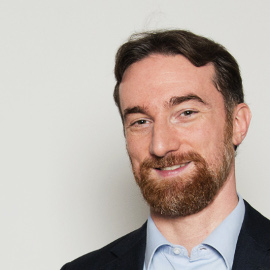
Lawyer in Vicenza and member of the local Bar Association.In 2003 he was granted the European Master in Law and Economics cum laude by the University of Rotterdam (The Netherlands), with a published Master Thesis about legal protection of software, comparing trade secret protection versus open source licenses from a Law and Economics perspective.
His main practice area is TLC/ICT Law, particularly e-commerce, data retention, domain names, software licenses and contracts.
He is member of the Editorial Board of the Erasmus Law and Economics Review, an on-line review which aims at spreading the Law and Economics approach in order to break down national barriers and enable lawyers from all over the world to communicate with each other by providing a common framework of thinking.
Since 2008 he is member of the Freedom Task Force of the Free Software Foundation Europe.
Carlo Piana
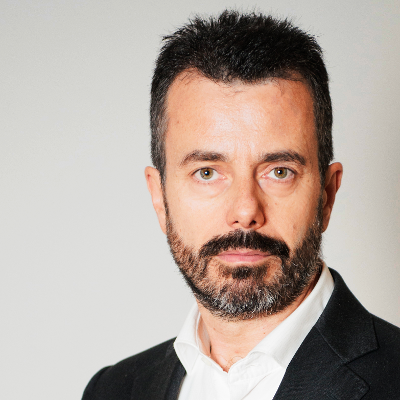
Lawyer in Milan, member of the local bar and admitted to practice before the Supreme Court, Carlo is a pre-eminent Italian IT Lawyer, working almost exclusively in the Information Technology and Telecommunication Law, a field where he begun consulting on 1994. Passionate about technology and Free Software (Open Source) he has been active in many battles for Digital Rights and against monopolization, as with the antitrust cases in the Software Workgroup Servers field (where he represented the Free Software Foundation Europe and the Samba Team) or with the standardization process of XML document formats (like DIS29500, also known as ECMA 376 or Office Open XML – OOXML), or again more recently in one of the largest IT acquisition ever, involving the World largest Free Software company as target.
Carlo is Chairman of the Board of the Open Source Initiative and has been General Counsel for the Free Software Foundation Europe, has been a member of the Advising Committee of the Italian Digital Agency for laying down the first National rules for software procurement. He is author of several articles in the areas of Civil Law, IT&TLC Law and data protection on Italian and International reviews and a founding member of the Editorial Committee of the International Free and Open Source Law Review. He is president of euroITcounsel and member of the IP and OS advisory of UNTIL, the United Nations’ Technology Innovation Laboratories.
He mainly deals with licensing and technology transfers (mostly in the field of telecommunication, media and software), software protection and compliance, trademarks, cryptocurrencies and NFTs.
Has been included (11 times in 13 editions) in the Italian section of the Who’s Who Legal for Data (Information Technology).
Giovanni Battista Gallus
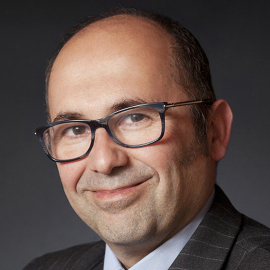
Copyright, Criminal, Data Protection/Privacy and IT law are his main areas of expertise. In the last years, he is devoting a significant part of his practice to the legal aspects of UAVs (drones) After a cum laude degree in Law in Italy, he moves to Great Britain for the Master of Laws in Maritime Law e Information Technology Law at the University College London – UCL. Afterwhile, he earns a PhD. In 2009 he obtains the European Certificate on Cybercrime and Electronic Evidence (ECCE). He is ISO 27001:2013 Certified Lead Auditor (Information Security Management System). Member of the Bar of Cagliari since 1996, admitted to the Supreme Court since 2009, Data Protection Officer for several public entities, he is a fellow of the Department “Informatica Giuridica” at the Università Statale of Milan where he teaches in the Post-Graduate Course in Digital Forensics and cybercrime. He also teaches at the Master for Data Protection Officers, organized by the Politecnico of Milan. Fellow of the Nexa Center on Internet and Society and of the Hermes Center for Transparency and Digital Human Rights. Author of several publications on the above mentioned areas and speaker at the main national and international congresses, he sides his legal profession an intense teaching activity, mainly in the field of copyright, Free/Open Source Software, data protection, IT security, digital forensics and drones. Member of the Data Protection Commission of the Italian Bar Association (Consiglio Nazionale Forense)
Francesco Paolo Micozzi
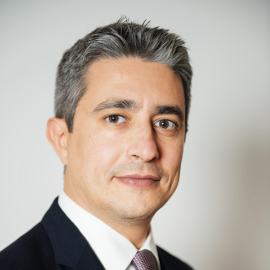
Lawyer, he concentrates on criminal law, with a particular emphasis on IT law, privacy, cybersecurity, money laundering, copyright. He is lecturer on “Informatica Giuridica” at the University of Milan (Università degli Studi di Milano) and he has authored several publications on information technology criminal law. He is member of the working group of the Italian Foundation for Forensic Innovation (FFIF) at the National Bar, and of the working groups “Surveillance” and “E-justice” for the National Bar Association and at CCBE in Brussels (Conseil des Barreaux Européens). He is also member of the Council of his Bar (Cagliari).
Guglielmo Troiano
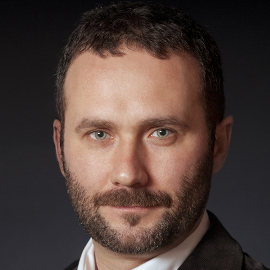
Also he cooperate with some associations that deal with IT security (Oracle Community for Security, Cloud Security Alliance Italy Chapter). He often writes scientific articles (Opensource.com, Ciberspazio e Diritto, Diritto e Giustizia, LeggiOggi, ICT4Executive).
From 2009 to 2014 he worked as scholar at University of Milan, chair of Legal Informatics, where he did lectures for students and attendees of Post-Graduate Course in Digital Forensics, Privacy, Cloud e Cyber Warfare (edition 2014).
During his professional experience he has been part of important lawsuits (above all Microsoft vs. European Commission – Case T/201-04 before European Court of Justice) and he has worked on complex projects on Privacy compliance.
Last but not least, he has a strong attitude for legal issues of free and open source software.
Simone Aliprandi
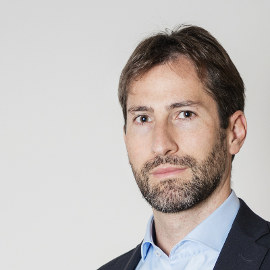
He graduated in Law from the University of Pavia (with a thesis in Intellectual Property Law on open content licenses) and is a member of the Bar of Lodi. He earned a further degree in Public Administration Science and later won a scholarship for a PhD program in Information Society at University of Milano-Bicocca.The doctoral program, which ended in January 2012 with a dissertation about the social perception of copyright in the digital age, has given him the opportunity to carry out a research experience based in the USA.He always had equal interest for the professional activity (specifically giving advice in the fields of intellectual property law and ICT law) and for academic activities (lecturing and research). In fact, parallel to his work within the Array team, he constantly collaborates with university departments and research institutions, giving lectures, following research projects and editing publications. He is also “Professor of Legal Issues” at the SAE Institute in Milan (an international consortium with Middlesex University of London) and collaborates with the Chair of Legal Informatics of the University of Milano-Bicocca.
He also deals with science dissemination on the issues within his area of concentration, with an intense publishing activity, releasing all his works with open content licenses.
Michela Pintus
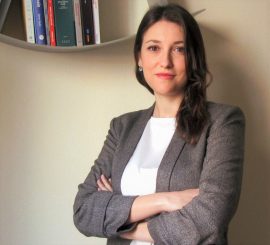
Alba Calia
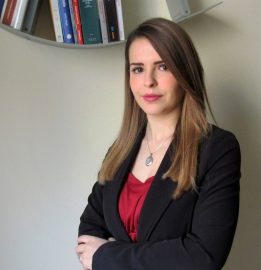
She deepened her training with numerous courses and seminars on intellectual property, digital public administration, privacy and legal informatics. In January 2018 she qualified as an Attorney at Law and practiced as a lawyer at the Cagliari Bar. Then she earned her Master degree in Competition and Innovation Law at the LUISS School of Law. In 2019 Alba obtained a research fellowship from the Department of Law of the University of Cagliari dealing with the legal consequences related to the online dissemination of fake news and other harmful phenomena of the network.
She is author of several publications related to legal information technology and lecturer in training courses and seminars. As a Lawyer, she deals mainly with innovation law and advice on data protection law; she is also part of the privacy team of several public and private entities.
